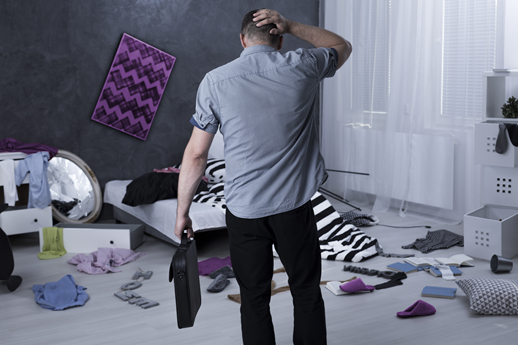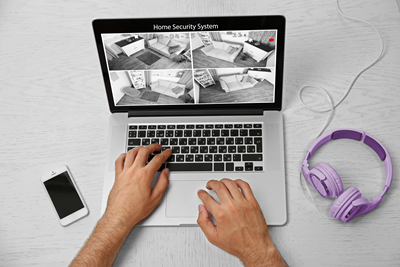
Burglaries are not as common as they once were. According to figures from the Office for National Statistics, in the year to March 2017, there were 650,000 incidents, a record low.
Households are four times less likely to be victims of a break in today than they were in 1995.
Nonetheless, that’s still an awful lot of people who do go through the heartbreak of finding that someone has entered their property and potentially stolen some of their possessions.
Burglary hotspots
It’s worth bearing in mind that some regions are more at risk of burglary than others. Recent research from price comparison site MoneySuperMarket identified the UK’s burglary hotspots, with Guildford, Cambridge, Manchester, Leeds and Birmingham all featuring prominently.
It noted that the areas with the highest rates seem to fall into two categories; wealthy suburbs and busy urban areas, where strangers are less likely to garner attention.
Nonetheless, no single area is entirely safe from burglary, so what should you do if you find yourself the victim of a break in? And what steps should you take to further protect your home in future?
Call the police
Your first move after a break in should be to call the police. The earlier they are involved, the better the chances they have of catching the thieves.
Opening a record of the incident with the police is also essential for any insurance claims you want to make. You’ll need to leave a statement, and then you’ll be given a crime number. Make sure you keep this in a safe place as you will need it later on.
Don’t touch anything
Your first instinct after a burglary may be to try to tidy up, for example to sweep up any broken glass if a window has been smashed or to replace any drawers that may have been removed while the thieves rummaged through your things.
However, it’s crucial that you don’t do this; your home is now a crime scene, and there may be forensic evidence which can help the police with their enquiries. You should also consider taking photos as additional evidence to share with your insurer if needed.
What’s missing?
Once you can start looking around the property again, you’ll need to check whether important personal items like your credit and debit cards, your passport and your driving license have been taken.
If they have, you will want to report this and get your card accounts closed as soon as possible.
You should make a list of everything that has been taken, and approximate values of those items.
Speak to your insurer
You’ll need to speak to your insurer within 24 hours to file a claim. It’s a good idea to go through your policy beforehand so that you are clear about exactly what you need to provide when making a claim, such as receipts for high value items or photographs of the damage.
You will need to explain exactly what happened and provide the insurer with the crime number. Generally, a loss adjuster will be sent out by the insurer to see what happened.
It is important to secure your home. If you need to call out a glazier or locksmith to help secure your property after the break-in, then be sure to keep those receipts too as you may be able to claim that money back if you have home emergency cover.
Security systems
If you have any security systems in place, such as CCTV or a smart system, then check the recordings. This may help with any criminal proceedings should the police identify the burglars.
Beefing up your home security
According to the police, homes with no security measures in place are five times more likely to suffer a burglary than those with some form of additional security.
Simple steps to beef up your home’s security include installing good exterior lighting, getting a visual burglar alarm, and ensuring rear and side fences are kept in good condition.
Improving the standard of the locks at the front and back of the property is a good move too; the police say that in most burglaries criminals gain entry by forcing the lock or kicking it in.
The police also suggest ‘marking’ your valuables. You can use a forensic marking solution, so that the mark - your postcode perhaps or the first few letters of your address - are only visible under ultraviolet light. This can make it easier for the police to identify stolen goods, and harder for the thieves to sell them on.
Another option here is to improve the security of those valuables inside the home, perhaps by using a safe.
Joining a Neighbourhood Watch scheme can be effective too, as you’ll be uniting with other people in your community to be extra vigilant about suspicious behaviour in the area. There are a number of schemes that exist around the UK such as the Hampshire Bobbies; as part of the free service they will go out to a home after a burglary and even before to check how secure the property is and provide advice. Look out for schemes in your local area.
Finally, don’t forget that there are now a host of smart security systems which can allow you to monitor things like who is at your front door via your smartphone, no matter where you are. These can come with the additional financial benefit of potentially lowering the cost of your premiums.


